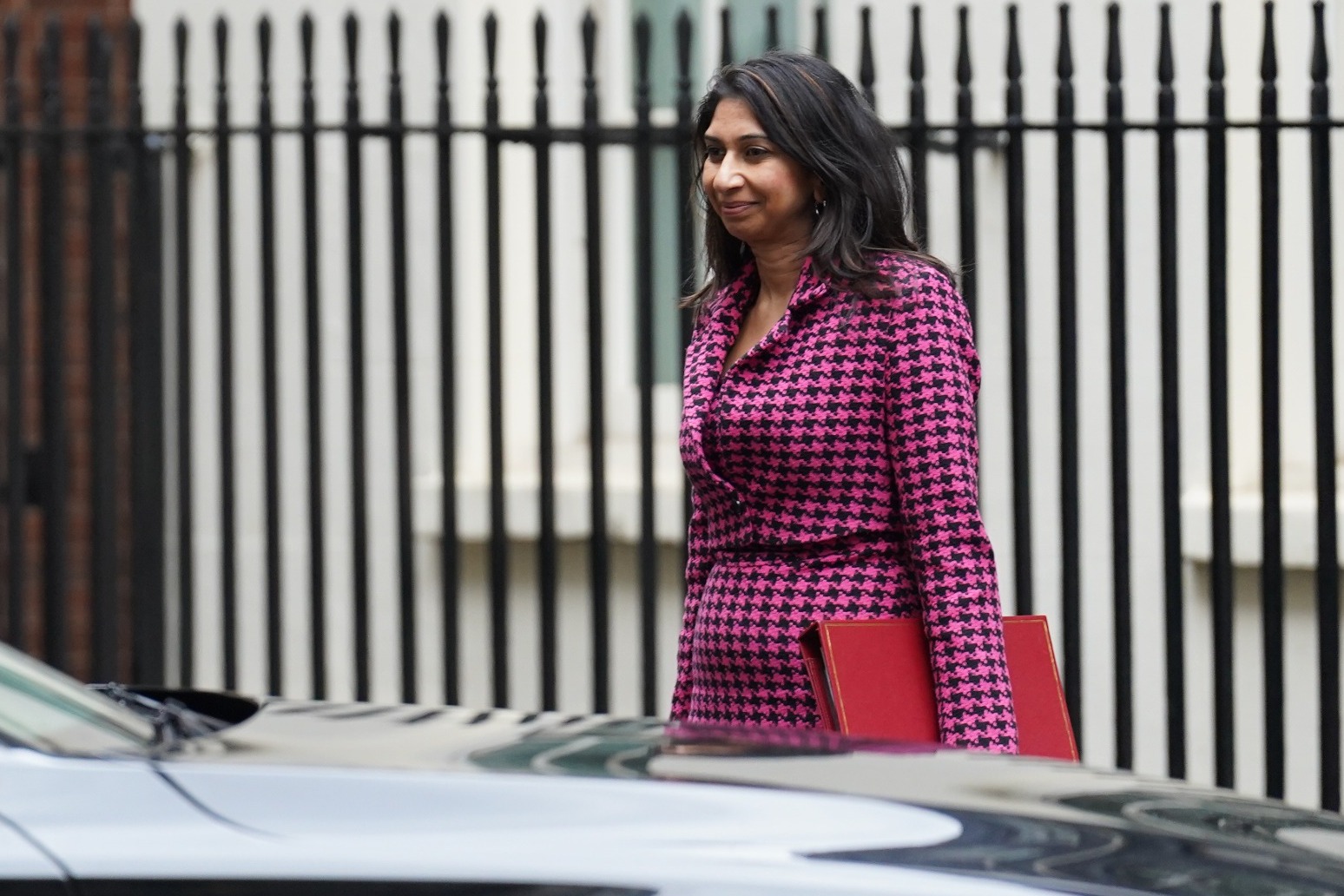
Braverman’s call to ramp up stop and search ‘would cause further alienation’
The Home Secretary’s call to ramp up the use of stop and search would “further alienate and isolate” people, a former police chief and safeguarding expert has said.
Jim Gamble said police must make “sensible and sensitive judgments” rather than being “driven by a political agenda about being tough on crime”.
Earlier this week, Suella Braverman called on police to “ramp up” the use of controversial stop and search powers “to prevent violence and save more lives”.
She told the Commons on Monday it must be used “skilfully, responsibly and proportionately”, but her comments prompted strong criticism from Opposition MPs.
Critics of stop and search argue it disproportionately targets black and ethnic minority communities.
Mr Gamble, an independent child safeguarding commissioner with
City and Hackney Safeguarding Children Partnership, said what is actually needed is engagement with communities.
He told BBC Radio Four’s The World At One programme: “If you want to further alienate and isolate this overly-represented community within that criminal justice sphere, then do that (stop and searches).
“My experience as a police officer in Northern Ireland, my experience at CEOP (Child Exploitation and Online Protection), my experience within Hackney, the city, and Bromley and beyond, is that actually we need to engage our communities.”
He said less than 3% of stop and searches result in the discovery of a weapon so “we can conflate figures till the cows come home”.
He added: “I would urge the Metropolitan police commissioner to continue to do the professional policing work that many of his officers do, making sensible and sensitive judgments, not being driven by a political agenda about being tough on crime.”
Met Commissioner Sir Mark Rowley has insisted his force will decide when to use stop and search, adding that he did not see the comments as an order to forces.
Mr Gamble was speaking as his update report on the Child Q scandal – which saw a 15-year-old black schoolgirl strip-searched by police while on her period after being wrongly suspected of carrying cannabis at school – was published on Tuesday.
Scotland Yard apologised and said the strip-search at the girl’s school in 2020 without another adult present “should never have happened”.
Mr Gamble said that since the scandal came to light in March 2022, there was “limited” evidence of significant positive impact on the ground – something he said was not surprising given it is a “problem that’s grown over so many years” and therefore was not going to be resolved in a year.
But he told the programme that no children in Hackney had been subjected to a strip search in Hackney in 14 months “so there’s an immediate positive, but the work to do goes far, far deeper than that”.
He said while Child Q is still asking “why me?”, it is a question everyone should consider.
He said: “Would this exist if child Q was a blonde-haired, blue-eyed girl in a south Kensington school? I don’t think it would. Child Q wonders why it’s her because at the end of the day, worst case scenario, she smelled of cannabis.
“You can pick that up in the back of a taxi or having your lunch somewhere. So she’s asking ‘why me?’ and we all need to ask that question.”
Responding to the update, Hackney council said it recognised that the report “concludes that concerns about safeguarding, racism and disproportionality extend to all statutory services, and that all bodies and organisations need to work together in a coordinated way to embed change”.
In a joint statement, Mayor of Hackney Philip Glanville, deputy Mayor Anntoinette Bramble and Susan Fajana-Thomas, cabinet member for community safety, said: “We again reiterate our calls to the top of the Met Police to recognise and accept the definition of institutional racism.
“Real and lasting progress and change will remain paralysed until this happens.”
Mr Gamble also said he would urge Sir Mark to “accept that phrase”.
He told World At One: “It’s difficult for anyone to accept racism or institutional racism, and it takes courage to do that. And I believe Mark Rowley should step back, reflect on this.
“At the end of the day, when officers are working within a system that for many, many years, has seen systems and procedures that disproportionately engage young black people, it’s not about calling individual officers racist – it’s recognising that the system has become institutionally racist through those practice and procedures.”
Published: by Radio NewsHub